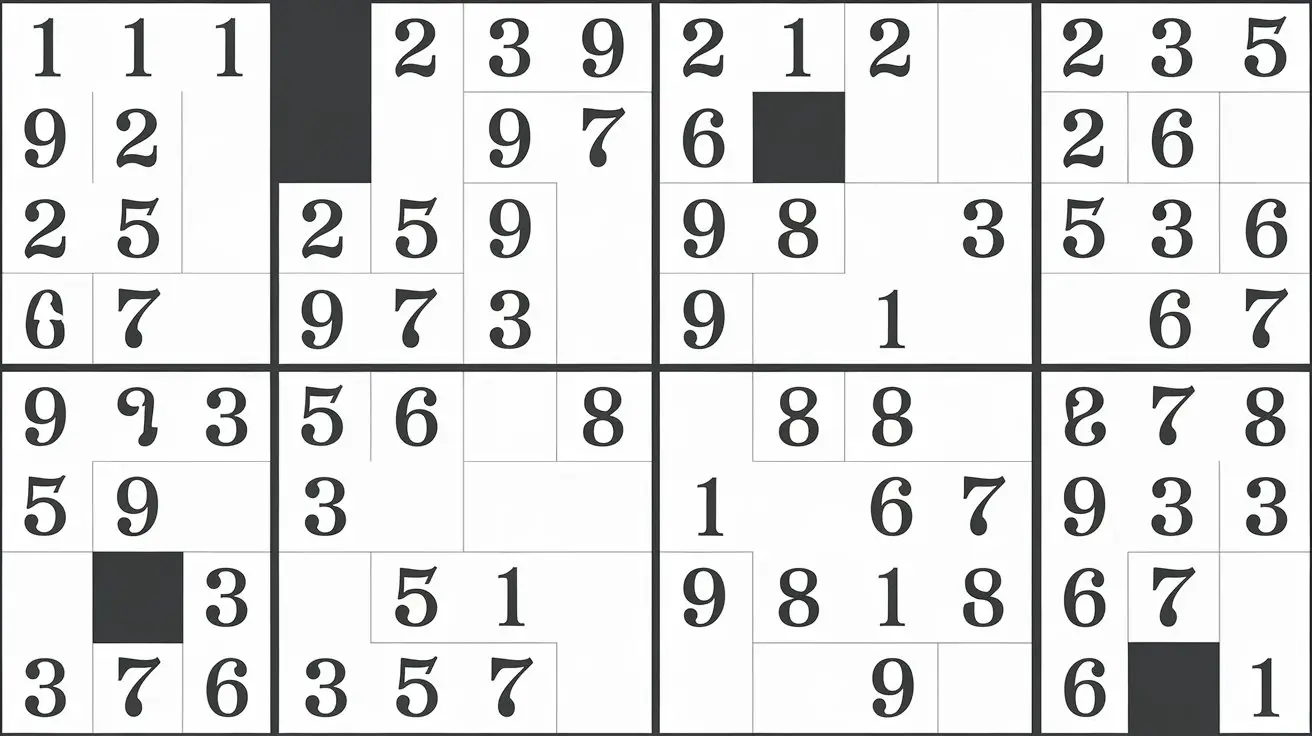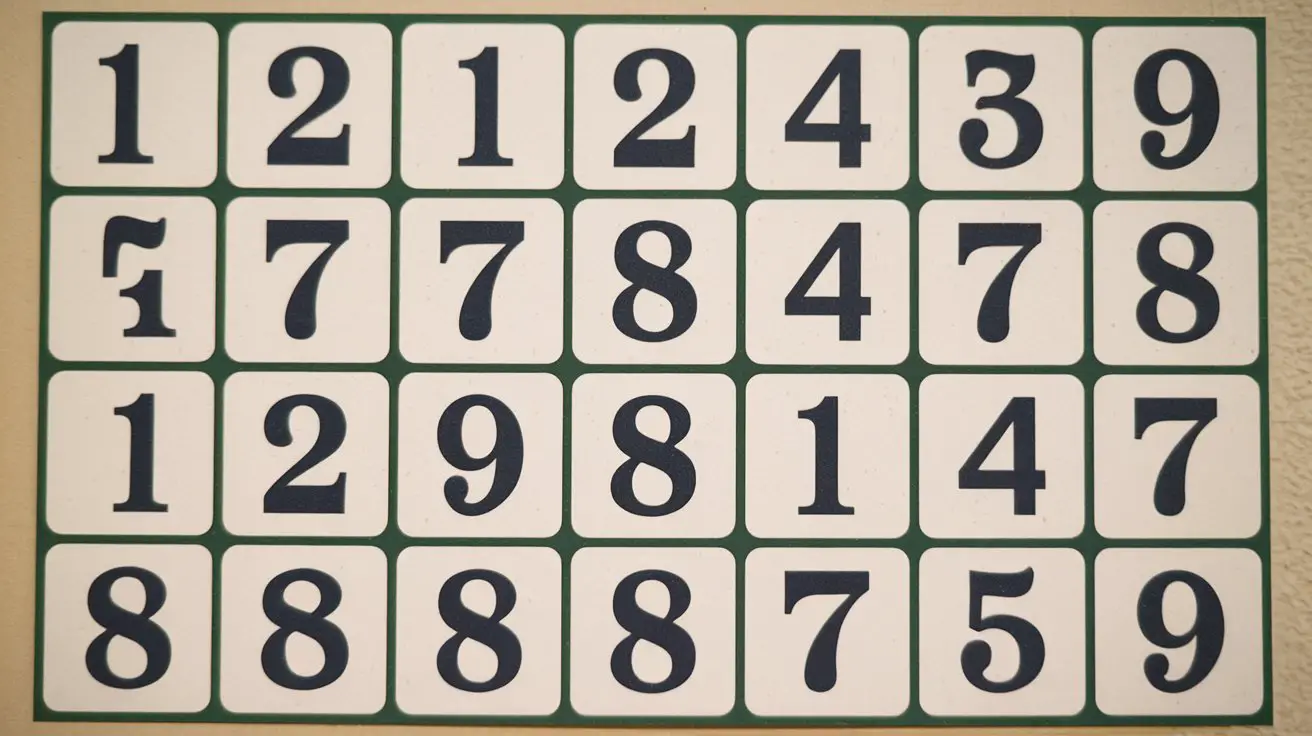Sudoku, a puzzle game that has captivated minds across the globe, is more than just a pastime—it’s a mental workout that has been proven to boost cognitive abilities. Whether you’re on a morning commute, enjoying a quiet evening at home, or taking a break at work, Sudoku offers a perfect challenge that is both engaging and relaxing. Its popularity spans continents, with particularly strong followings in the USA, UK, Italy, and Australia. In this article, we’ll explore the origins of Sudoku, its benefits, tips for beginners and experts alike, and why it continues to be a beloved game worldwide.

The Origins of Sudoku
Sudoku, as we know it today, has its roots in an 18th-century Swiss mathematician’s concept called “Latin squares.” However, the puzzle truly began to take shape in Japan in the late 20th century, where it was given the name “Sudoku,” meaning “single numbers.” The puzzle quickly became a hit in Japan and was later introduced to the global audience in the early 2000s. Its rise to popularity was meteoric, particularly in Western countries like the USA and UK, where newspapers and online platforms quickly adopted it.
Why Sudoku is So Popular
- Accessibility and Simplicity
Sudoku’s appeal lies in its simplicity. The game requires no special equipment—just a pencil and paper or a digital device. The rules are easy to understand: fill a 9×9 grid with numbers so that each row, column, and 3×3 subgrid contains all the numbers from 1 to 9 without repetition. Despite its simplicity, Sudoku offers endless variations and levels of difficulty, ensuring that players of all skill levels can enjoy it.
- Mental Benefits
Sudoku is more than just a game; it’s a brain-boosting exercise. Regularly playing Sudoku can improve memory, concentration, and logical thinking. The puzzle challenges players to think critically and strategically, making it a great way to keep the mind sharp at any age. Studies have shown that engaging in such mental exercises can delay the onset of cognitive decline in older adults.
- Universal Appeal
Sudoku transcends language barriers and cultural differences. The game’s universal appeal means it’s enjoyed by people of all ages and backgrounds. In the USA, UK, Italy, and Australia, Sudoku is a common feature in newspapers, magazines, and online platforms, making it accessible to millions.
- Flexibility and Variety
Whether you have five minutes or an hour, Sudoku fits perfectly into your schedule. The game offers a wide range of difficulty levels, from easy puzzles that can be completed quickly to challenging ones that require deep concentration. This flexibility makes Sudoku a versatile game for both casual players and dedicated enthusiasts.

How to Get Started with Sudoku
If you’re new to Sudoku, getting started is easy. Here’s a simple guide to help you dive into the world of Sudoku:
- Understand the Basics
- The Sudoku grid consists of 81 squares, divided into nine 3×3 subgrids.
- The objective is to fill the grid with numbers from 1 to 9 so that each number appears only once in each row, column, and subgrid.
- Start with Easy Puzzles
- Begin with puzzles labeled as “easy” to familiarize yourself with the patterns and strategies.
- Look for rows, columns, or subgrids that are nearly complete, and fill in the missing numbers.
- Use Logical Deduction
- Sudoku is a game of logic, not guessing. Use the process of elimination to determine which numbers can go in each square.
- Pay attention to the numbers already placed in the grid, as they will guide your decisions.
- Practice Regularly
- Like any skill, Sudoku requires practice. The more you play, the better you’ll become at spotting patterns and solving puzzles quickly.
- As you improve, gradually increase the difficulty level to challenge yourself.
Advanced Sudoku Strategies
Once you’ve mastered the basics, you can start incorporating more advanced strategies to solve harder puzzles:
- Scanning and Cross-Hatching
- Scanning involves looking for obvious placements by examining rows, columns, and subgrids. Cross-hatching is a method where you look at intersections of rows and columns to narrow down number placements.
- Pencil Marks
- Use pencil marks to jot down possible numbers in empty squares. This technique helps keep track of your options and prevents mistakes.
- Naked and Hidden Pairs
- A naked pair occurs when two squares in a row, column, or subgrid can only contain the same two numbers. These numbers can be eliminated as possibilities in other squares. Hidden pairs involve identifying two numbers that only appear in two squares within a row, column, or subgrid, even if other numbers are present as pencil marks.
- X-Wing and Swordfish Techniques
- These are more advanced techniques that involve identifying patterns across rows and columns to eliminate possibilities and solve more complex puzzles.

Why Sudoku Appeals to Players in the USA, UK, Italy, and Australia
Sudoku’s global appeal is evident in its popularity across different cultures, particularly in the USA, UK, Italy, and Australia. In these countries, Sudoku is a staple in daily newspapers and a common feature on puzzle apps and websites. Let’s take a closer look at why it resonates so strongly in these regions:
- USA
- In the fast-paced environment of the USA, Sudoku offers a quick and satisfying mental challenge. It’s a popular way for Americans to relax during commutes, lunch breaks, or evenings at home. The rise of digital platforms has also made Sudoku more accessible, with many Americans enjoying the game on their smartphones and tablets.
- UK
- The UK has a long tradition of puzzle-solving, and Sudoku fits perfectly into the British love for brainteasers. British newspapers often feature Sudoku puzzles alongside crosswords, catering to readers who enjoy testing their wits daily. The game’s logical structure appeals to the analytical mindset of many British players.
- Italy
- In Italy, where relaxation and leisure are integral parts of life, Sudoku is enjoyed as a leisurely activity that stimulates the mind. Italians appreciate the game’s simplicity and the mental exercise it provides, making it a common pastime in cafes and homes across the country.
- Australia
- Australians are known for their love of outdoor activities and a balanced lifestyle. Sudoku complements this by offering a mentally engaging activity that can be enjoyed indoors or on the go. The game’s popularity in Australia is also boosted by its inclusion in newspapers and online platforms, where it’s widely accessible.
Sudoku’s Place in the Digital Age
Sudoku has seamlessly transitioned from print to digital, expanding its reach and accessibility. With the advent of smartphones, tablets, and computers, Sudoku is now available at your fingertips, anytime and anywhere. There are countless Sudoku apps and websites that cater to both beginners and experts, offering a range of features like hints, customizable grids, and daily challenges.
- Sudoku Apps
- Many Sudoku apps offer features like difficulty levels, hints, and progress tracking, making it easy for players to improve their skills. Popular apps include Sudoku.com, Microsoft Sudoku, and Brainium Studios’ Sudoku.
- Online Sudoku
- Websites like Web Sudoku and Sudoku Kingdom offer free puzzles that can be played on any device with an internet connection. These platforms often include leaderboards, allowing players to compete globally.
- Interactive Sudoku
- Some digital platforms offer interactive features, such as the ability to play against friends or participate in timed challenges. This adds a social and competitive element to the game, attracting a younger audience.
Sudoku and Cognitive Health
The cognitive benefits of Sudoku are well-documented. Regularly engaging in Sudoku puzzles can improve memory, enhance problem-solving skills, and delay cognitive decline. It’s particularly beneficial for older adults, providing a fun and challenging way to keep the mind sharp. For younger players, Sudoku helps develop logical thinking and concentration, skills that are valuable in both academic and professional settings.

Conclusion
Sudoku is more than just a puzzle; it’s a global phenomenon that transcends age, culture, and language. Whether you’re playing to relax, challenge your mind, or simply pass the time, Sudoku offers something for everyone. Its accessibility, mental benefits, and universal appeal make it a game that continues to captivate players in the USA, UK, Italy, Australia, and beyond.
If you haven’t tried Sudoku yet, there’s no better time to start. With countless puzzles available in print and online, you can easily find one that suits your skill level. Dive into the world of Sudoku today and experience the joy of solving one of the world’s most beloved puzzles.